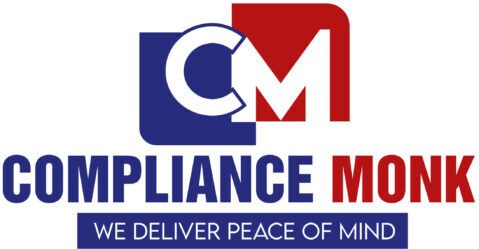
Taxation in India divided into 5 Heads of Income! Whether you’re a salaried professional, an entrepreneur, or an investor, understanding how your income is taxed under the Income Tax Act, 1961 can help you maximize tax benefits and avoid unnecessary liabilities.
Table of Contents
1️) Income from Salary – The Monthly Paycheck
If you earn a fixed monthly salary from an employer, this category applies to you. Your total salary package includes:
✅ Basic Salary – The core, taxable component of your earnings.
✅ Allowances – HRA, LTA, travel, medical, and special allowances.
✅ Perquisites (Perks) – Company-provided benefits like rent-free housing, car, stock options, and more.
💡 Tax Benefits & Deductions
✔ Standard Deduction – A flat ₹50,000 deduction is available for all salaried individuals.
✔ HRA Exemption – If you live in rented accommodation, part of your salary can be tax-free under Section 10(13A).
✔ Professional Tax Deduction – Any professional tax deducted by your employer is fully deductible under Section 16.
2️) Income from House Property – Rental Earnings & Deductions
If you earn rental income from real estate, it falls under this head. Interestingly, if you own multiple properties, even a vacant one (except your first self-occupied home) is considered “deemed to be let out” and taxed accordingly.
🏠 Tax Benefits & Deductions
✔ 30% Standard Deduction – You can deduct 30% of rental income for maintenance, irrespective of actual expenses.
✔ Home Loan Interest Deduction – If you have a home loan, you can claim a deduction of up to ₹2 lakh on interest paid under Section 24(b) for a self-occupied property.
3️) Profits & Gains from Business or Profession – Taxation for Self-Employed & Freelancers
If you’re an entrepreneur, freelancer, or professional (such as a doctor, lawyer, or CA), your earnings come under this head.
📊 Tax Benefits & Deductions
✔ Deduct Business Expenses – Rent, utilities, employee salaries, and even marketing costs can be deducted.
✔ Depreciation on Assets – If you own equipment, machinery, or vehicles for business use, you can claim depreciation benefits.
✔ Presumptive Taxation (Sections 44AD & 44ADA) – If your turnover is below ₹2 crore (for businesses) or ₹50 lakh (for professionals), you can opt for presumptive taxation, simplifying tax filing.
4️) Capital Gains – Profits from Investments & Asset Sales
Earnings from selling property, shares, mutual funds, or any capital asset are taxed under Capital Gains. The tax rate depends on how long you hold the asset before selling it.
📈 Types of Capital Gains
✔ Short-Term Capital Gains (STCG) – If you sell stocks within 1 year, gains are taxed at 15%. For real estate, the period is less than 3 years, and gains are taxed as per your income tax slab.
✔ Long-Term Capital Gains (LTCG) – Stocks & mutual fund gains exceeding ₹1 lakh are taxed at 10%, while real estate and other assets are taxed at 20% (after indexation benefits).
🛡️ Tax Saving Options
✔ Section 54 – Reinvest capital gains in another residential property to claim tax exemption.
✔ Section 54EC – Invest in NHAI or REC Bonds within 6 months to save on LTCG tax.
5️) Income from Other Sources – The “Everything Else” Category
This category includes all miscellaneous income that doesn’t fit into the above four heads:
✔ Interest Income – From savings accounts, FDs, or bonds.
✔ Dividends – From stocks or mutual funds.
✔ Gifts & Lottery Winnings – Gifts exceeding ₹50,000 (from non-relatives) & lottery income taxed at 30% flat.
⚖️ Tax Considerations
✔ Savings Account Interest – Up to ₹10,000 is tax-free under Section 80TTA.
✔ FD Interest Taxation – Fully taxable, but TDS applies only if interest exceeds ₹40,000 (₹50,000 for senior citizens).
✔ Tax-Free Gifts – Any gift received from parents, siblings, or spouse is exempt.
💡 Why Choose Compliance Monk for Tax Planning?
At Compliance Monk, we simplify the tax filing process, helping individuals and businesses optimize tax savings and ensure full compliance with the Income Tax Act, 1961.
✔ Expert Assistance – Get personalized tax advice from experienced professionals.
✔ Error-Free Filings – Avoid mistakes that could lead to penalties or scrutiny.
✔ Hassle-Free Tax Savings – We ensure you claim all deductions legally available to you.
✔ Updated with Latest Amendments – We keep you informed about new tax regulations and benefits.
Let Compliance Monk handle the complexities while you focus on growing your wealth!
FAQs
1. How do I determine which income category applies to me?
Your source of income decides the tax category. If you earn a salary, it falls under Income from Salary. Rental earnings go under Income from House Property, while profits from investments and businesses have separate heads.
2. Can I claim deductions under multiple heads of income?
Yes! If you have income from multiple sources (e.g., salary + rental income + stock profits), you can claim applicable deductions under each category.
3. What happens if I don’t declare all my income?
Hiding income can result in penalties and scrutiny from the Income Tax Department. It’s best to report all earnings and claim legal deductions.
4. How do I save tax on capital gains?
Investing in real estate, specified bonds (NHAI/REC), or reinvesting in similar assets can help you claim exemptions on long-term capital gains.
5. What is the penalty for late filing of Income Tax Returns (ITR)?
A delay in filing ITR attracts a penalty of ₹1,000 (for income below ₹5 lakh) and ₹5,000 (for higher incomes) under Section 234F.
